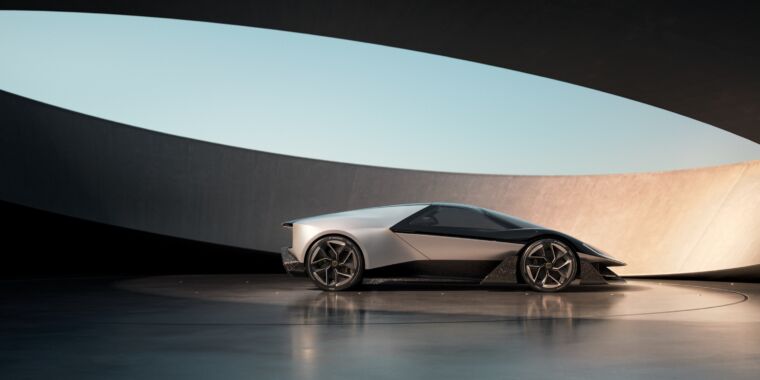Cats playing with robots proves a winning combo in novel art installation
Blast Theory – Stephen Daly
Cats and robots are a winning combination, as evidenced by all those videos of kitties riding on Roombas. And now we have Cat Royale, a “multispecies” live installation in which three cats regularly “played” with a robot over 12 days, carefully monitored by human operators. Created by computer scientists from the University of Nottingham in collaboration with artists from a group called Blast Theory, the installation debuted at the World Science Festival in Brisbane, Australia, last year and is now a touring exhibit. The accompanying YouTube video series recently won a Webby Award, and a paper outlining the insights gleaned from the experience was similarly voted best paper at the recent Computer-Human Conference (CHI’24).
“At first glance, the project is about designing a robot to enrich the lives of a family of cats by playing with them,” said co-author Steve Benford of the University of Nottingham, who led the research, “Under the surface, however, it explores the question of what it takes to trust a robot to look after our loved ones and potentially ourselves.” While cats might love Roombas, not all animal encounters with robots are positive: Guide dogs for the visually impaired can get confused by delivery robots, for example, while the rise of lawn mowing robots can have a negative impact on hedgehogs, per Benford et al.
Blast Theory and the scientists first held a series of exploratory workshops to ensure the installation and robotic design would take into account the welfare of the cats. “Creating a multispecies system—where cats, robots, and humans are all accounted for—takes more than just designing the robot,” said co-author Eike Schneiders of Nottingham’s Mixed Reality Lab about the primary takeaway from the project. “We had to ensure animal well-being at all times, while simultaneously ensuring that the interactive installation engaged the (human) audiences around the world. This involved consideration of many elements, including the design of the enclosure, the robot, and its underlying systems, the various roles of the humans-in-the-loop, and, of course, the selection of the cats.”
Based on those discussions, the team set about building the installation: a bespoke enclosure that would be inhabited by three cats for six hours a day over 12 days. The lucky cats were named Ghostbuster, Clover, and Pumpkin—a parent and two offspring to ensure the cats were familiar with each other and comfortable sharing the enclosure. The enclosure was tricked out to essentially be a “utopia for cats,” per the authors, with perches, walkways, dens, a scratching post, a water fountain, several feeding stations, a ball run, and litter boxes tucked away in secluded corners.

E. Schneiders et al., 2024
As for the robot, the team chose the Kino Gen3 lite robot arm, and the associated software was trained on over 7,000 videos of cats. A decision engine gave the robot autonomy and proposed activities for specific cats. Then a human operator used an interface control system to instruct the robot to execute the movements. The robotic arm’s two-finger gripper was augmented with custom 3D-printed attachments so that the robot could manipulate various cat toys and accessories.
Each cat/robot interaction was evaluated for a “happiness score” based on the cat’s level of engagement, body language, and so forth. Eight cameras monitored the cat and robot activities, and that footage was subsequently remixed and edited into daily YouTube highlight videos and, eventually, an eight-hour film.
Source link





